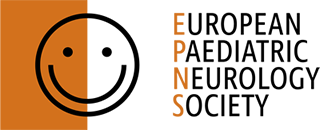Background
In 2002 Paediatric neurology was accepted at the European level as a sub-specialty of Paediatrics and also of Neurology. In the process of defining the speciality, a European Paediatric Neurology Training Programme (Syllabus) was compiled and accepted by the European Paediatric Neurology Society (EPNS) and the national societies represented in the Committee of National Advisors (CNA) in Paediatric Neurology as well as the European Union of Medical Specialists (UEMS)sections for Paediatrics and Neurology. The revised Syllabus was again discussed and accepted with entry both from Paediatrics or Neurology by EAP (European Academy of Paediatrics, the Paediatric Division of UEMS) in December 2010.
In order to push the implementation of a high standard of paediatric neurology training, in 2004 the EPNS Board and the CNA agreed to create a Training Advisory Board (TAB) and to develop a training evaluation programme intended to support national societies in developing their training systems
AIM
TAB offers the national child neurology societies the opportunity to evaluate their national training system. The aim is a standard of training in accordance with the European Paediatric Neurology Training Programme (Syllabus) in each European country.
Constitution of TAB
- TAB Chair is the CNA Chair
- Members
- EPNS: President
- EPNS: Secretary
- 4 members of the Education & Training Committee, including its Chair
- 4 elected members of the CNA including its Chair
- 1 Delegate of the EACD
- 1 Delegate of the Neurology Board
- For predetermined TAB tasks additional co-opted members can be appointed. They act as additional TAB members for the duration of the task.
Delegates of the 2022-2026 Training and Advisory Board
| CNA representatives | Dilek Yalnizoglu | CNA Chair, TAB Chair, EPNS Board Representative |
| Anne-Marie Childs | CNA Secretary, EPNS Board Representative (2024-26) | |
| Agnese Suppiej | CNA Member, Elected EPNS Board Member | |
| Monica Vasconcelos | CNA Member, EPNS Board Representative (2022-2023) | |
| E&T representatives | Dana Craiu | EPNS Education & Training Committee Chair |
| To be confirmed | EPNS Education & Training Committee member | |
| EPNS President | Kevin Rostasy | |
| EPNS Secretary | Rob Forsyth | |
| EAN representative | To be confirmed | |
| EACD representative | To be confirmed |
The national training evaluation programme
Introduction
The programme was created in 2004 as an offer to national paediatric neurology societies to evaluate their national training system in comparison with the training programme recommended in the Syllabus. The assessment is voluntary.
Initiation
The assessment is initiated by the national paediatric neurology society. TAB appoints one of its members to be the responsible communicator, who makes contact with the national society through their liaison person.
Pre-visit evaluation
In a first step it is intended to gather as much information on the national organisation of Paediatric Neurology and neurodisability services, number of paediatric neurologist and need for training capacity, national training system in Paediatric Neurology (if existent: syllabus; training centres and their capacity and resources; availability for training, other specialties and laboratory disciplines; tutoring system; relation to paediatric and neurology training and continued professional employment; quality control and examination), research facilities. For further information see“Letter to the National Society”, “Pre-visit questionnaires”, “Pre-visit data sheet”
Visit
The usual duration of the visit should be 2 days. If the visited country is large, the visit should be longer (3 days) or two visits should be scheduled. Two to 3 TAB visitors (appointed by TAB and the national society) visit the country. According to the financial resources of the national society and diversity in paediatric neurology training two different visiting modalities are offered:
Visit of 2-4 centres (different cities in different locations of the country)
Visit of 1 centre and a meeting with representatives from other centres
The visits should include discussion with policymakers (representatives from the Ministry of Health)
Costs
The inviting national society bears the expenses for travel and accommodation of the invited TAB representatives. In countries with very limited financial resources (countries WB class 1, 2 + special circumstances) CNA will partly support the travel expenses of the visiting TAB members (decision by CNA and TAB before the visit takes place).
Report
A report is drafted by the visiting TAB members and further developed within the TAB until it can be finally approved by TAB and CNA. The report concludes the impressions from the assessment and gives recommendations for the future development of the paediatric neurology speciality and training. The final approved report is sent as an official document to the national society. The reports are published in the Newsletter of the European Journal of Paediatric Neurology and are available through this website.
Follow-up
The procedure is followed after 1-2 year with a follow-up questionnaire to the national society to gather information on whether the assessment contributed to the future development and whether the conclusions drawn led to any changes or developments.
